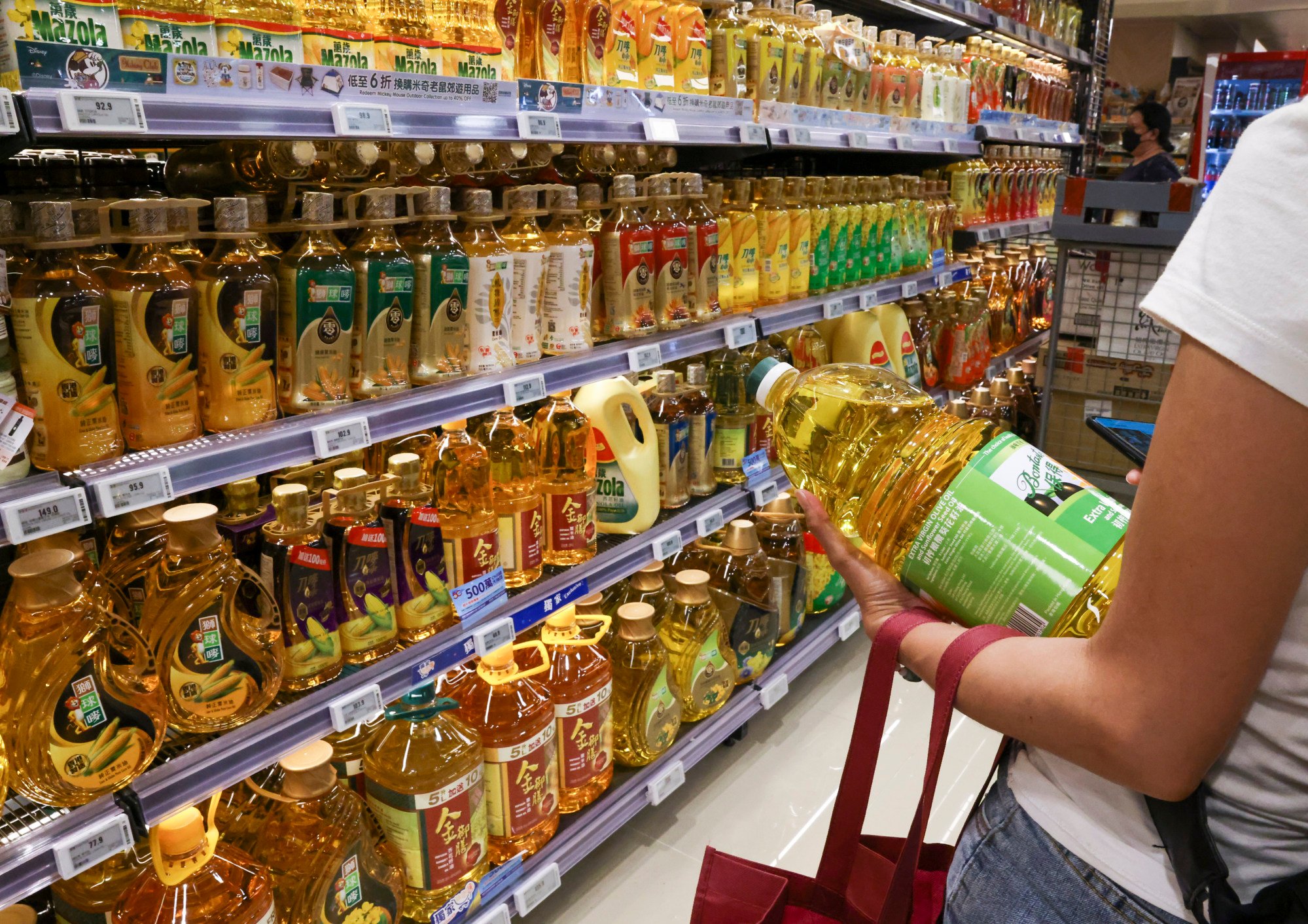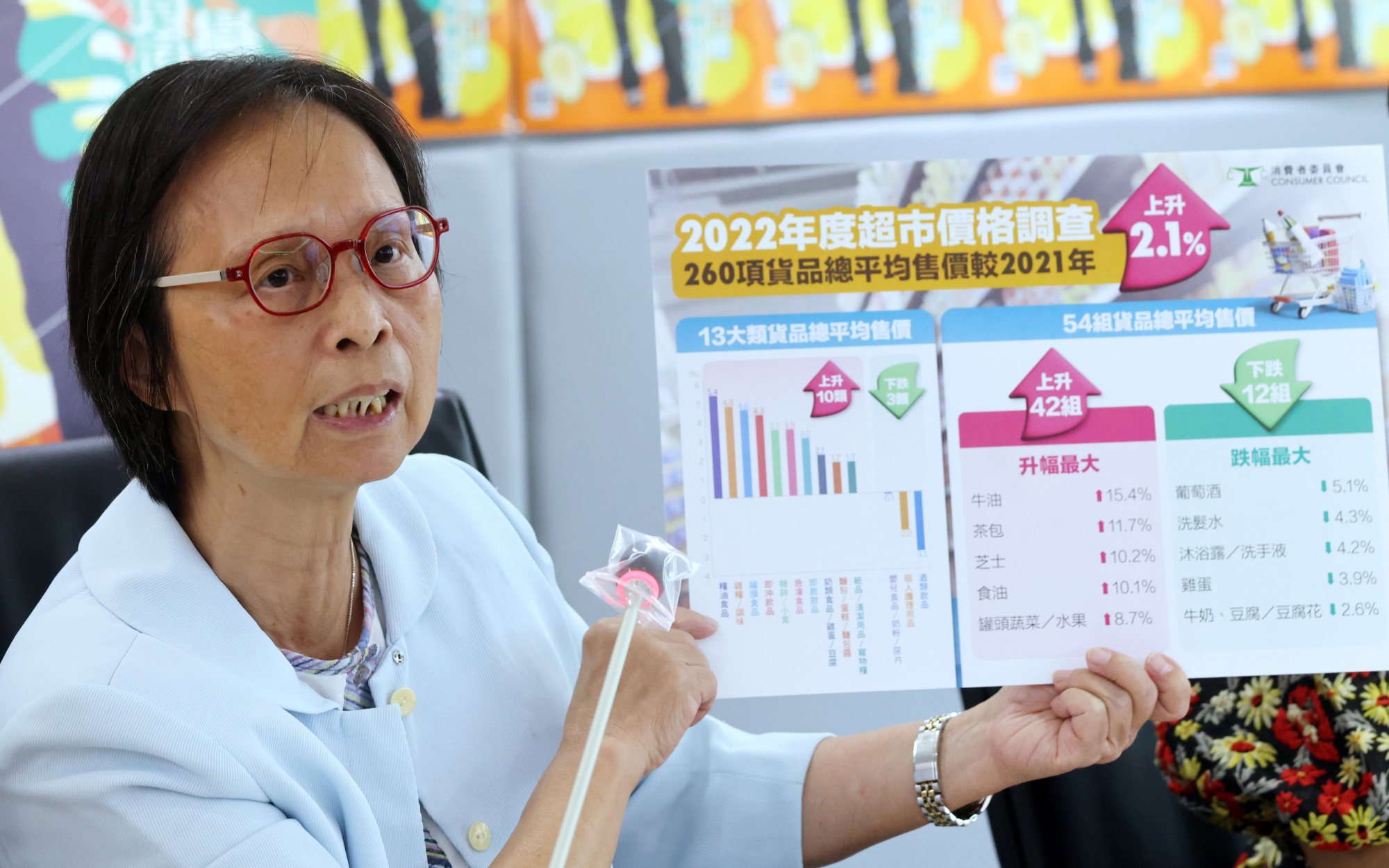
Hong Kong grocery prices up 10 per cent from pre-Covid era, canned food at least 30 per cent more costly: consumer watchdog
- Consumer Council points to pandemic and disruption to global supply chain, as well as stay-home rules in past three years inducing people to stockpile items
- Aggregate average prices of supermarket goods in 2022 also rose by 2.1 per cent year on year – the steepest surge since 2013
Grocery prices in Hong Kong have surged 10 per cent from pre-pandemic levels, while canned food is at least 30 per cent more expensive, according to a survey by the city’s consumer watchdog.
The Consumer Council on Monday revealed results of its comparison of the costs of 80 items across 15 selected groups through its “Online Price Watch” tool, which found that the four types of goods with the largest price increase were all canned items.
It said the items were from Hong Kong’s three major supermarkets – ParknShop, Wellcome and AEON.
The aggregate average price of the 80 products increased by 12 per cent in the first quarter of 2023 compared with 2019.
Hong Kong’s low-income families cut back on food as electricity rates increase
Canned vegetables and fruits saw the highest increase at 39 per cent in the first quarter of 2023 compared with the same period in 2019. Canned soups and fish also recorded a 35 per cent and 32.6 per cent increase respectively.
“The council believes this was due to many households storing large amounts of food with long shelf life during the pandemic in response to the stay-home and social-distancing measures, leading to increased demand which affected product prices,” said Nora Tam Fung-yee, chairwoman of the council’s research and testing committee.
The rest of the 80 essentials compared by the council included rice, edible oil, instant noodles and toilet paper.

The council also released results of the annual supermarket price survey 2022 on Monday, analysing 260 items and data from the three supermarket chains.
It found that aggregate average prices of supermarket goods in 2022 saw a 2.1 per cent rise as compared with the previous year – the steepest surge since 2013.
Nearly 70 per cent of the goods, or 175 items, increased in price year on year.

The top product groups with price surges were butter and tea bags with a 15.4 per cent and 11.7 per cent price increase respectively, while there was a more than 10 per cent rise in the costs of items categorised as cheese.
Aggregate average prices for edible oil also shot up for three consecutive years, with a jump of 10.1 per cent last year.
4.2 per cent rise in food prices at Hong Kong supermarkets amid fifth wave
“The results reflect that the cost of daily necessities such as staple food and groceries has increased,” Tam said.
She added that the three years of restrictions during the pandemic had severely disrupted the global supply chain, leading to price fluctuations and panic buying by consumers at one point.
“As society is at the early stage of recovery and needs time to fully bounce back, the council calls on supermarket groups to share and shoulder social responsibility by striving to control prices of necessities such as staple foods and groceries.”
Rising supermarket prices squeeze Hongkongers during Covid-19 crisis
Meanwhile, wine prices dropped the most at 5.1 per cent compared with last year, while “personal care” products dropped by 2 per cent.
Tam also urged consumers to shop around and compare prices for smart buys.
In response to the findings, ParknShop said the price increases were lower than what the council had found, adding it had avoided directly passing on the extra costs to consumers.
Hong Kong watchdog warns against health claims of pricey chicken essence
It also said the 12 per cent rise in prices reported by the council among 80 items available from its online shop was higher than the 9.7 per cent increase the company had found.
Wellcome, which runs more than 280 supermarkets, said it had extended a pricing scheme by six months from April 1 to stabilise costs as the pandemic had hit the city hard.
The scheme was first introduced in 2020 and froze the prices of more than 500 daily necessities and food items for six months.
AEON, which operates 10 general merchandise stores and two supermarkets in the city, said it had centralised the sourcing of goods to offset a jump in the cost of logistics, materials and labour during the pandemic. It added that the company would continue to offer promotions and discounts to shoppers while also expanding products of its own brands to lower costs.

